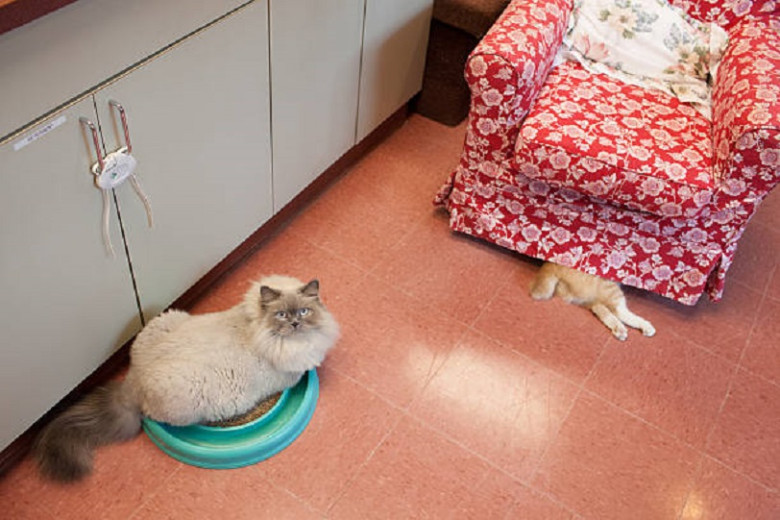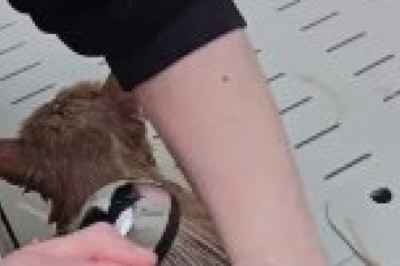
views
The Pet Wellness Boom Is Real: Are We Doing Too Much?

In recent years, the pet industry has experienced an unprecedented surge in wellness products and services. From CBD oils and acupuncture to raw diets and colloidal silver, pet owners are increasingly treating their animals as family members deserving of personalized health regimens. But as the market expands, so does the question: Are we overdoing it? And more importantly, are these trends backed by science or driven by marketing hype?
The Rise of Pet Wellness: A Cultural Shift
The modern pet owner’s approach to animal health has evolved dramatically. Once, a simple diet of kibble and routine vet visits sufficed. Today, pet wellness is a multi-billion-dollar industry fueled by a cultural shift toward holistic health, self-care, and the humanization of pets. According to industry analyst Tegzes, the pandemic played a pivotal role in this transformation.
"It was the perfect storm," Tegzes explains. "A surge in pet adoptions during lockdown, combined with a veterinarian shortage, created a demand for alternative health solutions." Simultaneously, the human wellness movement—think yoga, superfoods, and mindfulness—has spilled over into pet care, prompting a flood of new products promising longevity, vitality, and happiness for our furry friends.
Navigating the Sea of Pet Wellness Products
The marketplace now offers everything from adaptogenic herbs to laser therapy, often with little regulation or scientific validation. For example, many pet owners are adding supplements like fish oil, collagen peptides, or colloidal silver to their pets’ diets, believing these will improve joint health, coat quality, or immune function.

But what does the evidence say? Unfortunately, the scientific backing for many of these products remains limited. While some, like fish oil, have shown benefits in certain contexts, others lack rigorous testing. The pet industry is less regulated than human healthcare, meaning products can be marketed without comprehensive clinical trials.
What to Look for in Pet Products
As responsible pet owners, it’s crucial to scrutinize the claims and labels of wellness products. Here are some guidelines:
- Kibble and Food: Opt for brands that have undergone feeding trials—these demonstrate that animals can absorb nutrients and thrive on the product over time. Look for labels that state “exceeds AAFCO standards through feeding trials,” which indicates rigorous testing and proven efficacy.
-
Supplements: Choose products certified by the National Animal Supplement Council (NASC). The NASC label signifies adherence to manufacturing standards and quality control, providing an extra layer of assurance.
-
Ingredients and Claims: Be wary of products promising miracle cures or extraordinary benefits without scientific backing. Consult reputable sources or your veterinarian before adding new supplements or treatments.
The Role of Veterinarians and Evidence-Based Care
Despite the allure of trendy wellness products, the cornerstone of responsible pet care remains evidence-based veterinary medicine. Veterinarians are trained to evaluate the safety and efficacy of treatments, and their guidance should be prioritized.

"Always talk to your vet before starting any new supplement or treatment," advises Dr. Tegzes. "Many products can interact with medications or cause unintended harm." Remember, not all natural or holistic options are safe, and some may even be detrimental.
The Risks of Over-Medicalization
While the desire to extend our pets’ lives and improve their quality of life is understandable, over-medicalization can pose risks. Excessive supplementation or unproven therapies may lead to nutritional imbalances, adverse reactions, or delayed diagnosis of underlying health issues.
Moreover, the marketing of pet wellness products often exploits owners’ emotional bonds, promising longevity and happiness but lacking scientific validation. It’s essential to approach these claims with skepticism and prioritize proven, safe practices.
Striking a Balance: Personalization and Responsibility
Every pet is unique, and what works for one may not work for another. The key is to balance innovation with caution, personalization with evidence. As Tegzes emphasizes:
"Pay attention, do your research, and talk to your vet."
This approach ensures that your pet’s health decisions are grounded in science and tailored to their individual needs.
The Emotional Dimension of Pet Care
For many owners, pets are family—sometimes even considered children. One LAist colleague recently shared, "She is the closest thing I’ll have to a child." This emotional connection fuels the desire to do everything possible to ensure their well-being.
Tegzes understands this sentiment. "If a new food topper promises longevity, why wouldn’t we want to try it?" he asks. The answer is simple: love and responsibility must go hand in hand with informed decision-making. While it’s tempting to try every new supplement or treatment, it’s vital to remain
-
The Bottom Line: Loving Responsibly
The pet wellness boom reflects our deep love and commitment to our animals. It’s natural to want to give them the best life possible. However, this enthusiasm must be tempered with responsibility, scientific literacy, and consultation with veterinary professionals.

Remember, pets won’t live forever, but the love we share with them can last a lifetime. Ensuring their health through evidence-based practices, proper nutrition, and regular veterinary care is the most reliable way to extend their happiness and well-being.
Final Thoughts
As the pet wellness industry continues to grow, so does the importance of critical thinking. Not every trend is backed by science, and not every product is necessary or safe. By staying informed, asking questions, and trusting your veterinarian, you can navigate this complex landscape responsibly.
In the end, the goal is simple: to love our pets well, with care rooted in knowledge and compassion. Because, after all, the greatest gift we can give them is our responsible love—filtered through research, experience, and a genuine desire to do right by them.




















Comments
0 comment